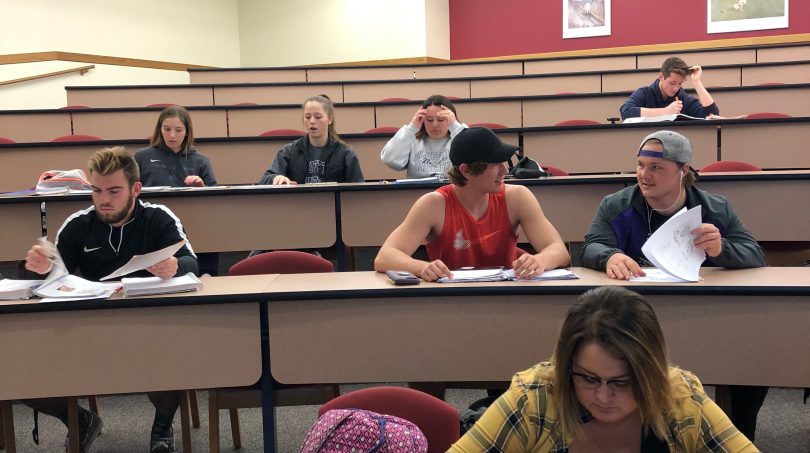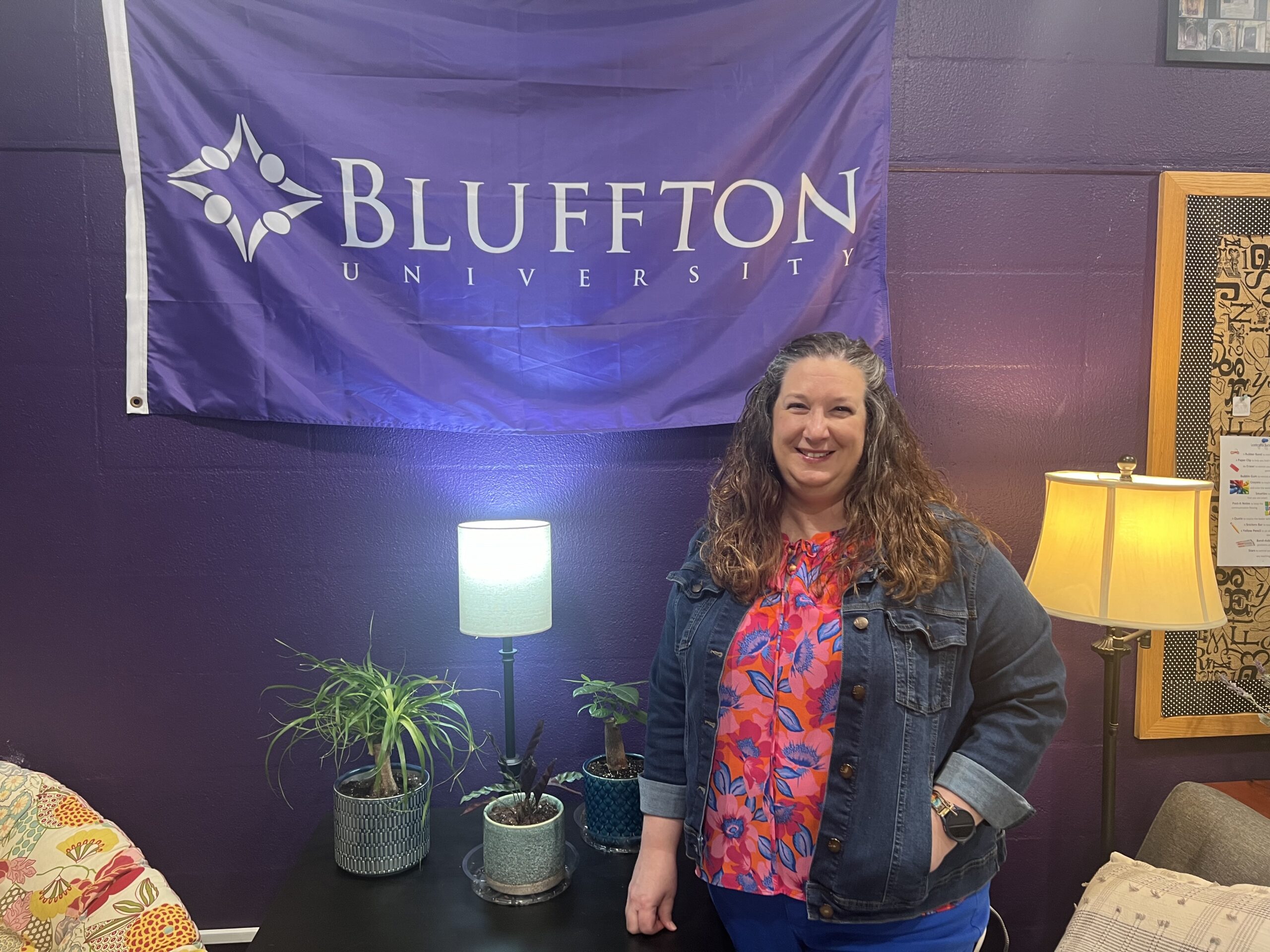A student’s schedule is typically crammed with a mixture of general education courses and courses for his or her major. However, just because a class doesn’t fall into one of those two categories doesn’t mean it’s not worth taking. As students begin meeting with their academic advisors to plan their next semester, here is a list of courses some Bluffton students have described as being among their most influential.
Introduction to Mild to Moderate Needs, taught by Tim Byers
This class taught senior speech language pathology and audiology major and special education minor Cassandra Reinhart about a variety of disabilities and disorders and how to adapt her way of thinking to fit the needs of these individuals. She said one way the class was able to do that was by helping her “realize that the way I treat others, regardless of if they have a disability or not, can impact them.”
Reinhart said she particularly enjoyed how Byers excelled at relating what was learned in class to how it will impact students as they start their careers and how he used examples from his past to help students learn for their future.
“You never know when you will encounter someone who has a disability and by taking this class you can develop a basic understanding of a wide variety of different disabilities,” said Reinhart.
Principles of Marketing, taught by Melissa Green
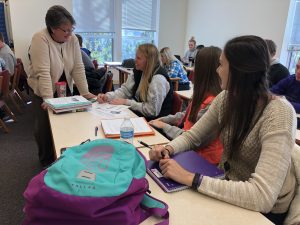
Melissa Greene interacts with students, File photo
Junior marketing and business administration major Adam Duncan said Green’s style of teaching is part of what made this class stand out, because she is “very personable and her teaching style is very involving.” Duncan took a lot away from this class, including how to market himself and how to sell himself in the business world. He said he feels as though he has retained more from this course than any other, which will be beneficial in the long run.
“I would highly recommend this course and any course Melissa teaches to any student,” Duncan said.
Christian Theology, taught by Alex Sider
While this course meets the upper-level religion requirement, senior biology major and chemistry minor Thomas Wagler said he took this class to learn more about the Christian faith in a historical context. Wagler said the class challenged his perception of what it means to be a Christian and how he sees his faith.
“[The class] opens you to new ideas you would have never thought before,” said Wagler. “I love history as much as I love my faith life and combining the two is what this class does.”
Introduction to Psychology, taught by Deanna Barthlow-Potkanowicz
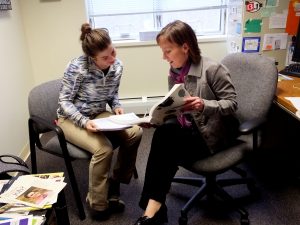
Deanna Barthlow-Potkanowicz meets with student Sophie Hobbs, file photo
The way the information was presented in this class is what made junior psychology major and exercise science minor TJ Mills appreciate this class. Mills said she loved Barthlow-Potkanowicz’s style of teaching. Additionally, Mills said she appreciated overlap that Introduction to Psychology had with her other classes. The class helped her get an introduction to her major in addition to providing a preview to the bigger topics she will learn about throughout her years at Bluffton.
Since she’s learned many other courses connect to what’s taught in Introduction to Psychology, Mills said, “It is important you take it with Deanna, and make sure you take good notes.”
Honors Seminar in Rhetoric and Argumentation, taught by Zachary Walton
A fulfillment of the honors program, this class exposed junior history and biblical and theological studies double major Tim Bender to rhetorical theory and analysis for the first time. Although the material wasn’t directly connected to either of his majors, Bender shared how he found it ties into them. Since his majors dedicate a lot of time to studying texts, the approaches he learned in this course to analyze and understand the messages conveyed by texts and their structures have enriched his understanding of readings encountered in other classes.
He also said he was able to complete a course project, a pentadic analysis of arguments from the Opinion of the [Supreme] Court in Obergefell v. Hodges, that he enjoyed because it “granted insight into the power dynamics at play in how the opinion was articulated.” Overall, Bender said Rhetoric and Argumentation was influential because “the course’s content will enrich your ability to process the content from your other classes. Also, the class effectively balanced being both constructively challenging and enjoyable.”
Social and Philosophical Issues in Education, taught by Paul Neufeld-Weaver
Junior special education major and psychology minor Leslie Beasley said she enjoyed this class because it provided a space to have an open discussion about some challenging topics, including race, gender and class. Students are also then encouraged to think of possible solutions to these problems. According to Beasley, students are forced to address their own biases.
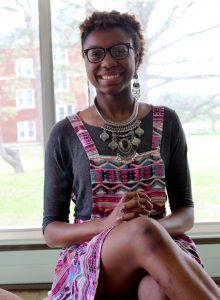
Leslie Beasley, file photo
One way they do this is by discussing how their own upbringing has affected their practices today. Beasley described the class as insightful, saying it would be beneficial for everyone, not just those in the educational field, despite the fact that it may be “uncomfortable, maybe frustrating for some.” In spite of the difficulty some of these discussions can bring, Beasley feels the class is necessary so that future teachers can learn how to address their future students and not remain ignorant to their issues.
“On a campus that is too silent about the topic of race, gender, class, biases, and discrimination, this class opens up the door for deep conversations on this topic, specifically from an education prospective,” said Beasley.

